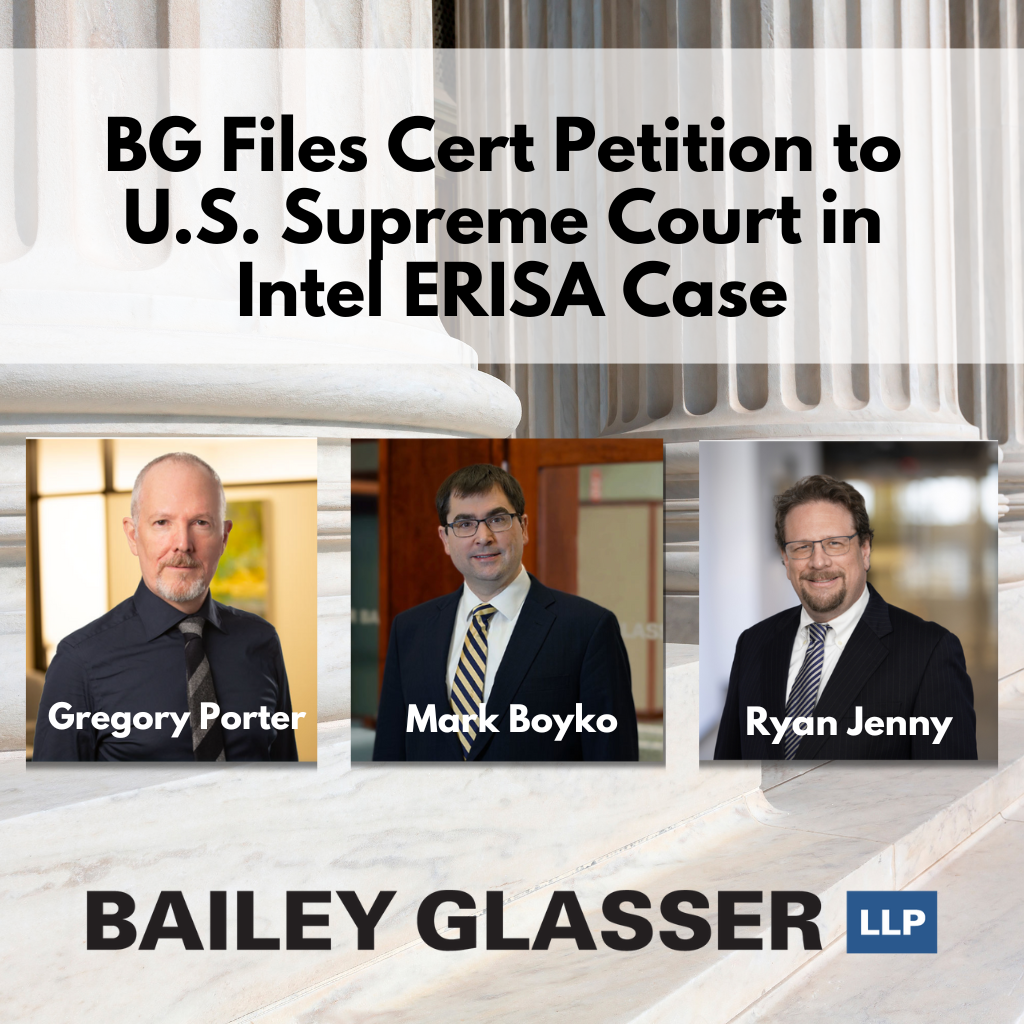BG Files Petition for Cert to the U.S. Supreme Court in Intel ERISA Case

BG’s ERISA team has filed a petition for certiorari to the U.S. Supreme Court on behalf of client Winston Anderson in his ongoing case against the Intel Corporation Investment Policy Committee, seeking damages for the alleged mismanagement of Intel employees’ retirement funds. The petition asks the Court to review and overturn the Ninth Circuit’s categorical application of the “meaningful benchmark” requirement, which required the plaintiff’s pleadings to compare the challenged fund to others that are “meaningfully similar.”
Gregory Porter, BG’s ERISA Practice Group Leader and leading co-counsel in this case, said, “This case presents a critical opportunity to clarify how courts evaluate fiduciary decision-making in complex retirement-plan investments, particularly as plans increasingly incorporate alternative and nontraditional assets.”
In addition to Greg Porter, the petition was filed by Bailey Glasser’s nationally-recognized ERISA litigation team, which includes partners Mark Boyko and Ryan T. Jenny, and co-counsel from Gupta Wessler LLP and The Barton Firm LLP.
Mr. Anderson, an Intel employee and participant in the company’s retirement plans, alleges that Intel’s plan fiduciaries violated their duties of prudence and loyalty under ERISA by investing billions of dollars of plan assets in unproven, high-risk, and illiquid alternative investments such as hedge funds and private equity, exposing participants to unnecessary risk and underperformance relative to traditional retirement options. The U.S. District Court for the Northern District of California dismissed the case, and in May 2025, the Ninth Circuit affirmed, holding that plaintiffs must identify “meaningful benchmarks,” such as comparator funds with similar objectives, risks, and rewards, to support claims of imprudent investment, emphasizing that fiduciary conduct must be judged by process, not outcomes.
Mr. Anderson’s cert petition now asks the Supreme Court to review the Ninth Circuit’s “meaningful benchmark” rule, requiring plaintiffs to compare a plan’s investments to a nearly identical alternative fund to show mismanagement, even if no such comparable fund exists. The petition argues that this rigid pleading standard conflicts with ERISA’s “prudent person” standard of care and the Supreme Court’s prior rulings in Fifth Third Bancorp v. Dudenhoeffer and Hughes v. Northwestern University, which make clear that fiduciary prudence should be evaluated based on context and circumstances, not categorical requirements.
To learn more about this case and to read the full cert petition, visit here.